Why Dogs Are The Ultimate Emotional Support Animals
In the realm of emotional support pets, dogs emerge as the ultimate companions, offering unwavering comfort and understanding.
Dive into the heartwarming reasons that make dogs extraordinary emotional support animals, bringing joy, solace, and a tail-wagging dose of unconditional love into our lives.
Discover the profound impact these four-legged friends have on our emotional well-being.
Synopsis – Why Dogs Are The Ultimate Emotional Support Animals
Dogs have held a special place in the hearts of humans since time immemorial, not just as loyal companions but also as incredible emotional support animals.
In this guide, we explore the profound reasons why dogs stand out as the best emotional support animals, offering unparalleled companionship and therapeutic benefits.
1)- Unconditional Love and Companionship
Dogs are renowned for their unwavering loyalty and unconditional love.
Their presence alone can provide a profound sense of companionship, easing feelings of loneliness and isolation.
2)- Intuitive Understanding
Dogs possess a remarkable ability to sense and understand human emotions.
They can pick up on subtle cues, offering comfort and support during times of distress without the need for words.
3)- Non-Judgmental Companionship
One of the most comforting aspects of a dog’s companionship is their non-judgmental nature.
They provide a safe and accepting space, allowing individuals to express themselves without fear of criticism.
4)- Stress Reduction
Studies have shown that spending time with dogs can lower cortisol levels and reduce stress.
The simple act of petting a dog can trigger the release of oxytocin, the “feel-good” hormone, promoting relaxation.
5)- Energetic Exercise Partners
Dogs are enthusiastic exercise partners, encouraging regular physical activity.
Regular exercise is not only beneficial for the dog but also contributes to improved mental health and reduced anxiety for their owners.
6)- Routine and Structure
The daily care routines that come with owning a dog can bring a sense of structure and purpose to life.
Dogs thrive on routine, and this can be particularly beneficial for individuals dealing with mental health challenges.
7)- Social Facilitation
Dogs act as natural social facilitators, providing opportunities for their owners to connect with others.
Whether at the park or during a neighborhood stroll, dogs make it easier to initiate conversations and build social connections.
8)- Mindfulness and Living in the Moment
Dogs excel at living in the present moment, a quality that can be incredibly grounding.
By observing and emulating their mindfulness, individuals can learn to appreciate and enjoy the “now.”
9)- Reduced Feelings of Isolation
For those experiencing isolation, a dog can be a constant source of companionship.
The bond formed with a dog creates a deep connection, reducing feelings of loneliness and fostering a sense of purpose.
10)- Unparalleled Empathy
Dogs are empathetic creatures, offering a listening ear and a comforting presence.
Their ability to provide empathy can be especially beneficial for individuals dealing with emotional challenges.
Bottom Line
In the realm of emotional support animals, dogs stand out as extraordinary companions, bringing joy, comfort, and therapeutic support to their owners.
Their unique qualities contribute to a profound bond that extends beyond the traditional pet-owner relationship, making them the ultimate emotional support animals.
1)- Unconditional Love & Companionship
In the realm of emotional support, there’s a furry friend that stands out among the rest – dogs.
These loyal companions not only wag their tails but also fill our lives with boundless love and unwavering companionship.

Unconditional Love
Dogs are renowned for their unconditional love. They don’t judge, criticize, or hold grudges.
Their love is pure and unwavering, making them ideal companions for those in need of emotional support.
Studies have shown that interacting with dogs increases oxytocin levels in humans, a hormone associated with bonding and affection.
This surge in oxytocin contributes to the strong emotional connection between dogs and their owners.
Companionship Beyond Words
Dogs excel in non-verbal communication, making them exceptional companions for those who find solace in silent understanding.
Their intuitive nature allows them to sense their owner’s emotions, providing comfort during times of distress without the need for words.
The companionship offered by dogs is not just physical; it extends to the emotional realm, creating a sense of security and belonging.
Summary
In the realm of Emotional Support Animals, dogs stand out as the epitome of unconditional love and companionship.
Their ability to connect with humans on a deep emotional level, coupled with the numerous physical and mental health benefits they bring, makes them the perfect choice for individuals seeking solace and support.
So, whether you’re navigating the complexities of life or simply yearning for a faithful companion, a dog might just be the ESA you need.
2)- Intuitive Understanding
Studies have revealed that dogs can recognize and respond to human emotions. They can distinguish between happy, sad, and even neutral expressions on human faces.
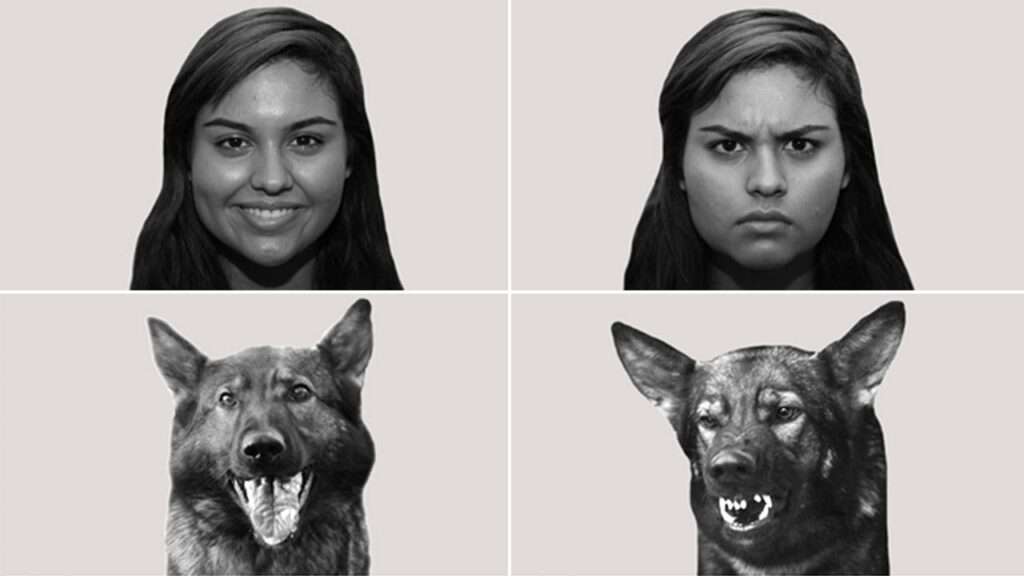
Image Credit: Dogs can read human emotions
The Power of Canine Intuition
Dogs have an innate ability to pick up on human emotions and moods, making them exceptionally attuned to their owner’s needs.
Research suggests that dogs can recognize human emotions by reading facial expressions, body language, and even subtle changes in tone of voice.
Alertness to Human Stress
Physiological Responses
Dogs can detect changes in their owner’s physiological responses to stress, such as increased heart rate or altered breathing patterns.Service dogs like cardiac service dogs can be specially trained to detect any changes in the heart rate and blood pressure of their handler.
Calming Presence
Many dogs instinctively respond to stress by offering a calming presence. This can involve leaning against their owner, licking, or simply being physically close.
Mirror Neuron Activation
- Mimicking Behavior
Dogs may mimic their owner’s behavior, a sign of mirror neuron activation, showcasing their ability to understand and connect emotionally. - Shared Emotions
The presence of mirror neurons allows dogs to share and reflect the emotional states of those around them.
Reacting to Environmental Cues
Alertness to Surroundings
Dogs may react to external cues that impact their owner’s emotions, such as responding to a doorbell ring or sensing tension in a room.Protective Instinct
In situations perceived as threatening, dogs may exhibit protective behavior, demonstrating an intuitive understanding of potential harm.Some studies even suggest that dogs can sense bad people as well.
Summary
In the realm of intuitive understanding, dogs showcase a depth of connection that goes beyond mere companionship.
Backed by extensive research, their ability to recognize emotions, respond empathetically, and communicate non-verbally makes them truly exceptional.
3)- Non-Judgmental Companionship
In the complex tapestry of human relationships, there exists a unique bond with our furry friends – dogs.
Beyond their wagging tails and loyal eyes, dogs stand out as non-judgmental companions.
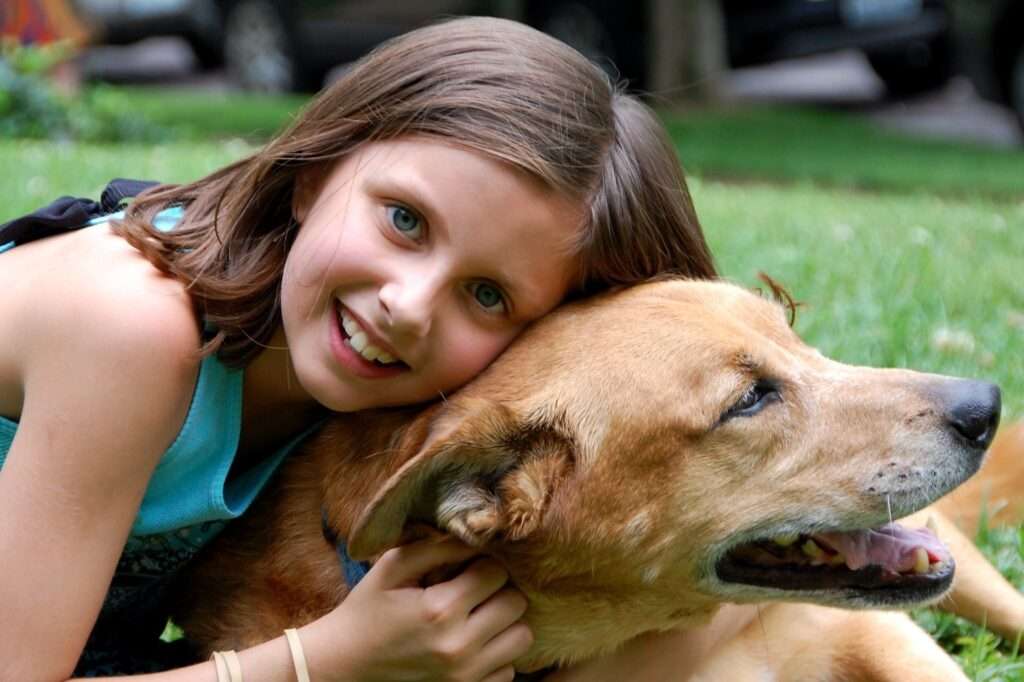
The Science Behind Non-Judgmental Companionship
- Studies have shown that interacting with dogs increases oxytocin levels in humans.
- Oxytocin, often called the “love hormone,” promotes feelings of trust and reduces stress.
- The release of oxytocin reinforces the non-judgmental connection between dogs and their owners, creating a positive feedback loop.
The Unconditional Acceptance of Dogs
Dogs don’t judge based on appearances, wealth, or social status. Their love is unconditional, embracing their owners without prejudice.
Research indicates that dogs respond positively to their owners regardless of external factors, fostering an environment of acceptance.
No Preconceived Notions
Humans often carry preconceived notions or biases, but dogs approach each interaction with an open heart.
Dogs don’t make assumptions about their owners’ past, mistakes, or imperfections, creating a safe space free from judgment.
Understanding without Criticism
Dogs excel in understanding human emotions without criticism. They don’t scold for tears or frown upon moments of vulnerability.
Their ability to sense emotions contributes to a non-judgmental atmosphere, promoting emotional well-being in their owners.
A Sanctuary of Confidentiality
Dogs are exceptional listeners who keep our secrets safe. They don’t share our struggles or judge our confessions.
The confidential nature of the human-dog bond contributes to a sense of trust and security.
Embracing Imperfections
Dogs are masters at embracing imperfections. They don’t seek perfection in their owners and love them even on their “ruff” days.
This unconditional acceptance promotes a healthy self-image and self-esteem in their human companions.
Summary
In a world where judgment can be pervasive, dogs shine as beacons of non-judgmental companionship.
Their unconditional acceptance, lack of preconceived notions, and ability to understand without criticism make them unparalleled friends.
Whether you’re experiencing joy or facing challenges, a dog’s non-judgmental companionship offers a sanctuary of love and acceptance, proving that the bond between humans and dogs is truly special.
4)- Stress Reduction
In the hustle and bustle of our daily lives, stress can become an unwelcome companion.
However, there’s a furry solution that has been scientifically proven to bring comfort and calmness – dogs.

The Oxytocin Connection
- Oxytocin Release: Interacting with dogs triggers the release of oxytocin, often referred to as the “love hormone” or “bonding hormone.”
- Stress Reduction: Oxytocin helps reduce stress by promoting feelings of trust, social bonding, and overall well-being.
- Positive Feedback Loop: The oxytocin release creates a positive feedback loop, reinforcing the emotional connection between humans and dogs.
Heart Health Benefits
- Lowering Blood Pressure: Petting a dog has been linked to lower blood pressure levels.
- Reduced Heart Rate: The calming presence of a dog can lead to a decrease in heart rate, contributing to cardiovascular health.
- Improved Cardiovascular Function: The overall impact on heart health extends to improved cardiovascular function and reduced risk of heart-related issues.
Stress Hormone Regulation
- Cortisol Reduction: Interactions with dogs have been associated with a decrease in cortisol levels, the hormone associated with stress.
- Balancing Stress Response: Dogs help regulate the body’s stress response, promoting a more balanced and healthier physiological state.
Mind-Body Connection
- Mindfulness and Presence: Caring for a dog encourages mindfulness and being present in the moment.
- Distraction from Stressors: Dogs serve as delightful distractions, redirecting focus from stressors and promoting mental well-being.
Summary
In the scientific tapestry of stress reduction, dogs emerge as four-legged stress busters.
Through the release of oxytocin, heart health benefits, stress hormone regulation, the mind-body connection, physical activity, social support, and their non-judgmental presence, dogs contribute significantly to our well-being.
So, the next time you feel stress creeping in, consider spending quality time with your canine companion – it’s a scientifically proven way to bring a wag to your well-being.
5)- Energetic Exercise Partners
In the journey towards a healthier lifestyle, our four-legged friends are more than just companions—they make pawsitively enthusiastic exercise partners.

Physical Activity and Endorphin Release
- Exercise and Play: Engaging in physical activities with dogs, such as walking or playing, promotes regular exercise.
- Endorphin Release: Exercise triggers the release of endorphins, the body’s natural mood lifters, contributing to stress reduction.
Natural Enthusiasm for Activity
- Instinctual Energy: Dogs have a natural instinct for movement and play, rooted in their evolutionary history as active and agile creatures.
- Enthusiastic Attitude: Their boundless enthusiasm for physical activity can be contagious, motivating owners to embrace a more active lifestyle.
Daily Walks: A Win-Win Ritual
- Routine Physical Activity: Dogs need regular walks to maintain their physical and mental well-being.
- Health Benefits for Humans: Owners benefit from routine walks, too, as it establishes a consistent exercise routine and contributes to cardiovascular health.
Running Partners Extraordinaire
- Built-In Running Buddies: Many dog breeds are inherently energetic and make excellent running companions.
- Consistent Pace: Dogs maintain a steady pace, encouraging owners to stay committed to their running routine.
Interactive Play Sessions
- Engaging in Play: Dogs thrive on interactive play, whether it’s a game of fetch, tug-of-war, or a spirited chase.
- Calorie Burn for Both: Play sessions are not just enjoyable but also contribute to calorie burn for both the dog and the owner.
Exploring the Great Outdoors
- Nature Walks and Hikes: Dogs love exploring the outdoors, making them perfect companions for nature walks and hikes.
- Mental Stimulation: Outdoor activities provide mental stimulation for dogs, reducing boredom and promoting overall well-being.
Diverse Exercise Opportunities
- Agility Training: Engaging in agility activities with dogs enhances their physical coordination and offers an exciting form of exercise for owners.
- Obstacle Courses: Setting up simple obstacle courses in the backyard can turn into a fun and dynamic workout for both dogs and owners.
Health Benefits for Owners
- Weight Management: Regular exercise with dogs contributes to weight management for both the owner and the furry companion.
- Lowered Risk of Health Issues: Physical activity lowers the risk of obesity, heart disease, and other health issues for both humans and dogs.
Summary
Dogs aren’t just loyal companions; they are energetic exercise partners ready to embark on fitness journeys with their owners.
Whether it’s the daily walk, a spirited run, interactive play sessions, or exploring the great outdoors, the synergy between dogs and their owners creates a fun and effective approach to staying active and healthy.
So, leash up, lace up those sneakers, and get ready to unleash wellness with your enthusiastic canine workout buddy!
6)- Routine and Structure
In the midst of life’s chaos, there’s a tail-wagging solution that brings not just joy but also a sense of order and routine – our faithful canine companions.

Daily Walks: A Paw-sitively Predictable Ritual
- Scheduled Exercise: Dogs thrive on routine, and daily walks provide them with the exercise and mental stimulation they need.
- Consistency for Owners: Walking your dog at the same time every day establishes a predictable routine for owners, contributing to physical and mental well-being.
Feeding Time: A Regular Ritual
- Mealtime Routine: Dogs typically have set feeding times, creating a structured routine around meals.
- Responsibility and Timing: Owners adhere to a feeding schedule, instilling a sense of responsibility and structure in their daily lives.
Playtime and Interaction
- Interactive Play Sessions: Dogs crave play and interaction, often at specific times during the day.
- Stress Relief for Owners: Scheduled play breaks provide owners with moments of joy and stress relief, breaking up the day with positive interactions.
Sleep Schedule: Beauty Rest for Both
- Consistent Bedtime Routine: Dogs often have a consistent bedtime routine, signaling the end of the day.
- Quality Sleep for Owners: The predictability of a dog’s sleep schedule encourages owners to establish healthy bedtime habits, promoting quality sleep for both.
Training Sessions
- Structured Training Time: Dogs benefit from structured training sessions for mental stimulation and obedience.
- Training as a Bonding Activity: Owners participating in dog training sessions strengthen the bond with their dogs while incorporating structured learning into their daily routine.
Routine Health Maintenance
- Scheduled Vet Visits: Regular veterinary check-ups and vaccinations are part of a dog’s routine healthcare.
- Responsible Ownership: Ensuring a dog’s health requires owners to adhere to a schedule, fostering responsibility and structure.
Consistent Companionship: A Daily Constant
- Constant Presence: Dogs are reliable companions, offering a consistent and comforting presence.
- Reducing Feelings of Loneliness: The constant companionship of a dog reduces feelings of loneliness and provides emotional support.
Summary
Dogs go beyond being pets; they are architects of routine and structure in their owner’s lives.
From daily walks to feeding times, play sessions to sleep schedules, and even health maintenance, the presence of a dog creates a rhythm that brings order and predictability to the chaos of everyday life.
Embrace the paw-sitive influence of your furry friend as they become the architects of routine, contributing not just to their well-being but to yours as well.
7)- Social Facilitation
In a world buzzing with social interactions, our furry friends emerge as the ultimate social facilitators.
Beyond their wagging tails and playful antics, dogs play a crucial role in enhancing our social lives.
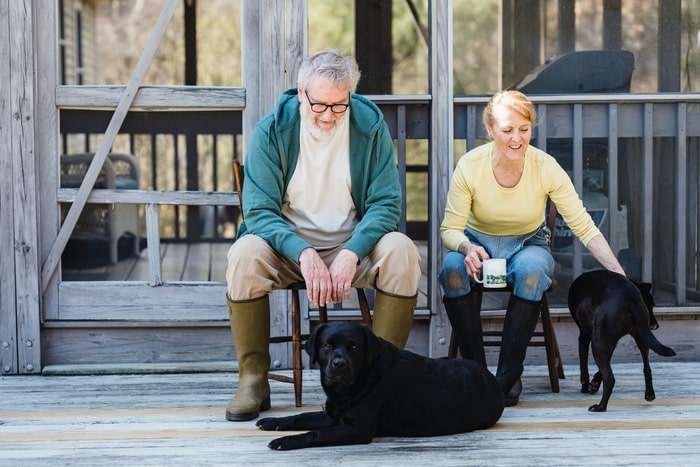
Ice Breakers Extraordinaire
- Conversation Starters: Dogs serve as natural conversation starters, providing an easy and comfortable topic for initial interactions.
- Shared Interest: The common interest in dogs creates an immediate connection, easing the awkwardness of starting a conversation.
Dog Walks: A Social Magnet
- Encouraging Interaction: Walking a dog invites friendly encounters with other dog owners or passersby.
- Community Building: Dog walks contribute to a sense of community, fostering connections with neighbors and fellow dog enthusiasts.
Dog Parks: Canine Social Hubs
- Off-Leash Play: Dog parks offer a space for off-leash play, allowing dogs and owners to engage in social activities.
- Opportunities for Human Interaction: While dogs play, owners have opportunities to connect, share experiences, and build friendships.
Read also:
Social Media Stars
- Online Connectivity: Sharing photos and stories of dogs on social media platforms creates online communities of dog lovers.
- Digital Bonding: Dogs become digital ambassadors, connecting people across the globe through shared appreciation for our four-legged friends.
Volunteering and Therapy Work
- Community Engagement: Dogs engaged in volunteer or therapy work provide opportunities for owners to connect with like-minded individuals.
- Shared Purpose: Working together for a common cause strengthens social bonds, both for the dogs and their owners.
Summary
Dogs, with their inherent charm and sociable nature, are perfect social facilitators.
Whether it’s a casual walk, a visit to the dog park, or engaging in online communities, the presence of a dog opens doors to connections and shared experiences.
As we embrace the paw-sibilities that dogs bring, let’s celebrate their role in enriching our social lives and fostering bonds that go beyond the leash.
8)- Mindfulness & Living in the Moment
In the hustle and bustle of modern life, finding moments of mindfulness can be a challenge.
Enter our loyal canine companions, offering not just companionship but also a unique avenue for living in the moment.
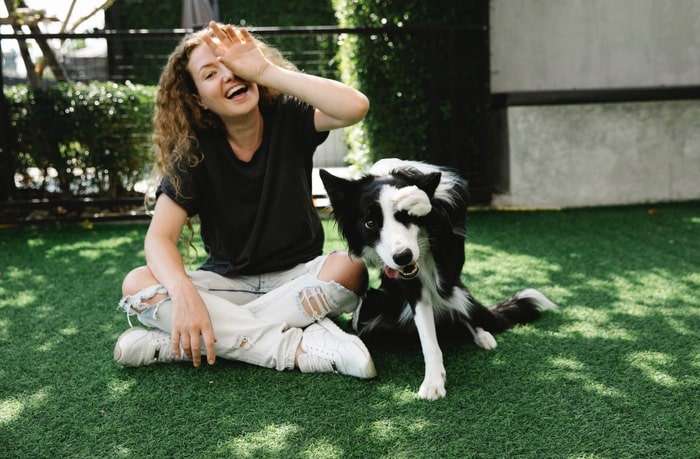
Dogs as Mindfulness Mentors
- Natural Masters of Mindfulness: Dogs excel at living in the present moment, exhibiting mindfulness in their every action.
- Teaching by Example: Observing a dog’s behavior serves as a powerful lesson in being present and appreciating each moment.
Sense of Purpose
- Routine and Responsibility: Caring for a dog establishes a routine and responsibility, anchoring us in the present.
- Fulfillment in Caretaking: Meeting a dog’s needs provides a sense of purpose and fulfillment in the present moment.
Mindful Eating
- Mealtime Rituals: Dogs often have set feeding times, creating a structured routine around meals.
- Shared Enjoyment: Sharing a meal with a dog encourages us to savor the moment and appreciate the simple pleasures.
Summary
In summary, dogs enrich our lives by bringing us into the present moment through their playful nature, unconditional love, mindful activities, and non-verbal communication.
Their companionship serves as a constant reminder to appreciate the present, fostering a deeper connection with ourselves and the world around us.
9)- Reduced Feelings of Isolation
In a world that often feels disconnected, the companionship of a dog stands out as a beacon of warmth and understanding.
Scientific research consistently supports the notion that dogs play a pivotal role in reducing feelings of isolation.
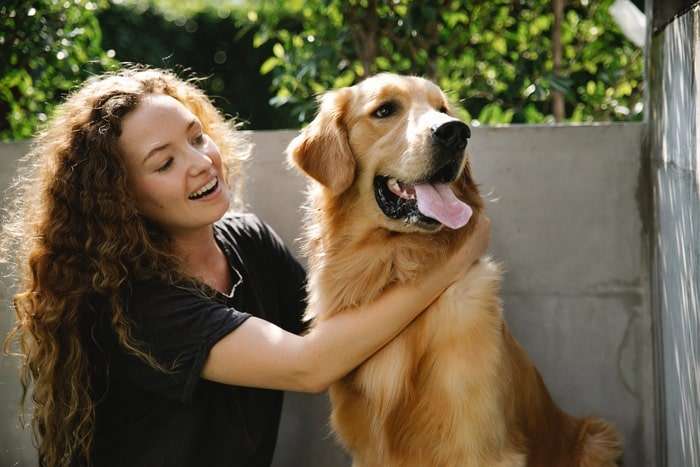
The Oxytocin Effect
- Oxytocin, the “Love Hormone”: Interactions with dogs have been linked to increased oxytocin levels in humans.
- Social Bonding: Oxytocin promotes social bonding and trust, fostering a deep connection between humans and their canine companions.
Reduced Cortisol Levels
- Cortisol, the Stress Hormone: Studies indicate that owning a dog is associated with lower cortisol levels.
- Stress Reduction: Lower cortisol levels contribute to reduced stress, creating a more relaxed and emotionally balanced state.
Physical Touch and Well-Being
- Physical Contact with Dogs: Petting and cuddling dogs release endorphins, the body’s natural mood enhancers.
- Emotional Well-Being: Regular physical touch contributes to improved emotional well-being, reducing feelings of isolation.
Summary
Scientific evidence underscores what dog owners have intuitively known for years – the profound impact of canine companionship on reducing feelings of isolation.
From the release of oxytocin to the therapeutic effects on mental health, dogs contribute significantly to creating a sense of connection and emotional well-being.
10)- Unparalleled Empathy
In the realm of companionship, dogs stand out as remarkable beings with an extraordinary ability—empathy.
Scientific research has delved into the depths of canine behavior, revealing that dogs exhibit unparalleled empathy.

Understanding Canine Empathy
- Defining Empathy: Empathy refers to the ability to understand and share the feelings of another.
- Human-Canine Connection: Studies highlight that dogs demonstrate a unique form of empathy, especially towards their human companions.
Recognizing Human Emotions
- Facial Expression Recognition: Research indicates that dogs can distinguish human facial expressions.
- Differentiated Responses: Dogs react differently to happy, sad, or angry human faces, showcasing their ability to recognize and respond to human emotions.
Physiological Synchronization
- Mirror Neurons in Dogs: Like humans, dogs have mirror neurons, contributing to their ability to mirror human emotions.
- Physiological Connection: Dogs synchronize their heart rates with their owners, reflecting an emotional connection and empathetic response.
Comforting Behavior
- Consoling Gestures: Dogs often engage in comforting behavior, such as leaning against their owners or offering a paw.
- Sense of Distress: Research suggests that dogs can sense their owners’ distress and respond with empathy-driven actions.
Empathy Across Species
- Empathy Towards Other Animals: Dogs showcase empathy not only towards humans but also towards other animals.
- Understanding the Needs of Others: Observations reveal instances where dogs comfort distressed animals, displaying a cross-species empathy.
Epathy in Therapeutic Roles
- Therapeutic Impact: Dogs are widely used in therapy settings due to their empathetic nature.
- Comfort and Healing: The empathetic presence of dogs contributes to emotional comfort and healing in individuals facing various challenges.
Summary
Scientific evidence highlights that dogs are not just companions; they are empathetic beings with a profound understanding of human emotions.
From recognizing facial expressions to providing comfort during distress, the empathy displayed by dogs is a testament to the depth of the human-canine connection.
As we celebrate the extraordinary empathy of our four-legged friends, let’s cherish the unique bond that transcends words and taps into the silent language of emotions shared between humans and dogs.w
Final Thoughts
In the intricate tapestry of human emotions, dogs emerge as unparalleled companions, offering many benefits that elevate them to the status of ultimate emotional support animals.
Unconditional Love & Companionship
Dogs provide unwavering love and companionship, creating a bond rooted in acceptance and loyalty. Their presence fosters a deep emotional connection.
Intuitive Understanding
With an intuitive understanding of human emotions, dogs navigate our moods with remarkable sensitivity, offering solace and support during both highs and lows.
Non-Judgmental Companionship
A dog’s non-judgmental nature creates a safe space for emotional expression, reducing the fear of scrutiny and fostering a relationship built on trust.
Stress Reduction
Scientifically proven, interactions with dogs release oxytocin, lower cortisol levels, and reduce overall stress, promoting a calmer and healthier state of mind.
Energetic Exercise Partners
Encouraging physical activity, dogs become enthusiastic exercise partners, infusing routines with joy, energy, and the health benefits of regular movement.
Routine and Structure
Dogs bring routine and structure to our lives, instilling a sense of purpose and responsibility through daily activities, and reinforcing stability and well-being.
Social Facilitation
As social facilitators, dogs break down barriers, encourage community building, and create opportunities for social interactions, fostering a sense of connection.
Mindfulness & Living in the Moment
Through their playful interactions, comforting presence, and natural mindfulness, dogs inspire us to live in the moment, appreciate simplicity, and find joy in the now.
Reduced Feelings of Isolation
Scientifically proven, the companionship of dogs significantly reduces feelings of isolation, providing a constant source of emotional support and connection.
Unparalleled Empathy
Backed by scientific research, dogs exhibit unparalleled empathy, recognizing and responding to human emotions, creating a bond that transcends language and resonates on an emotional level.
In every wag of their tails, every moment of play, and every shared experience, dogs stand as emotional pillars, offering a profound and irreplaceable source of support in the intricate journey of human emotions.
Embrace the canine connection, for in their companionship, we find not just friendship, but a reflection of our humanity.
FAQ
Why are dogs the best emotional support animals?
Dogs excel as emotional support animals due to their unwavering loyalty, unconditional love, and intuitive understanding of human emotions. Their non-judgmental companionship creates a unique bond that promotes emotional well-being.
How do dogs affect owners' mental health?
Dogs positively impact mental health by reducing stress through oxytocin release, providing companionship that combats feelings of loneliness, and promoting physical activity, which contributes to improved mood and reduced anxiety.
What are the top five best emotional support dog breeds?
While individual preferences vary, popular emotional support dog breeds include Labrador Retrievers, Golden Retrievers, Poodles, German Shepherds, and Beagles. These breeds are known for their affectionate nature, intelligence, and adaptability.
Can any dog be an emotional support animal?
Technically, any dog can provide emotional support. However, certain breeds and individual temperaments may be better suited for specific needs. It’s essential to consider the owner’s preferences, lifestyle, and the dog’s personality when choosing an emotional support companion.
How do dogs contribute to stress reduction?
Dogs contribute to stress reduction through various mechanisms, including the release of oxytocin, lowering cortisol levels, providing a calming presence, and encouraging physical activities that trigger the release of endorphins, the body’s natural mood lifters.
Do certain dog activities promote mindfulness?
Yes, activities like daily walks, play sessions, and shared moments of relaxation with a dog encourage mindfulness. By engaging in these activities, owners can focus on the present moment, fostering a mindful connection with their canine companions.
How do dogs help reduce feelings of isolation?
Dogs reduce feelings of isolation by offering constant companionship and unconditional love. Scientifically, the bond between dogs and their owners has been shown to lower stress and provide emotional support, creating a sense of connection that alleviates loneliness.
Can dogs sense human emotions?
Yes, dogs can sense human emotions through various cues, including body language, facial expressions, and even changes in scent. Their ability to recognize and respond to human emotions contributes to the deep emotional connection they share with their owners.
How do dogs act as social facilitators?
Dogs act as social facilitators by creating common ground for interactions. Whether at the dog park or on walks, dogs provide a natural conversation starter, fostering connections among people who share a love for these furry companions.
In what ways do dogs exhibit empathy?
Dogs exhibit empathy through recognizing human emotions, mirroring their owner’s feelings, displaying comforting behaviors during times of distress, and adapting their behavior to provide emotional support. Their empathy is a unique aspect of the human-canine bond.
